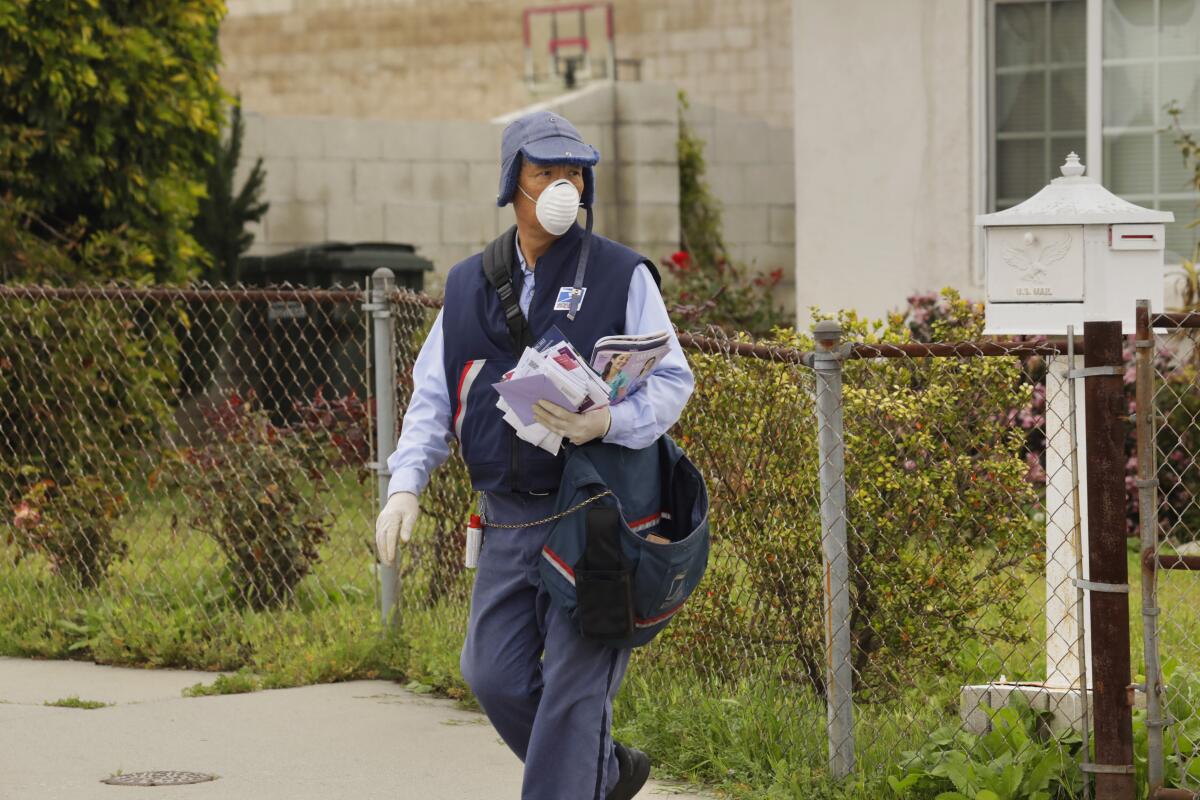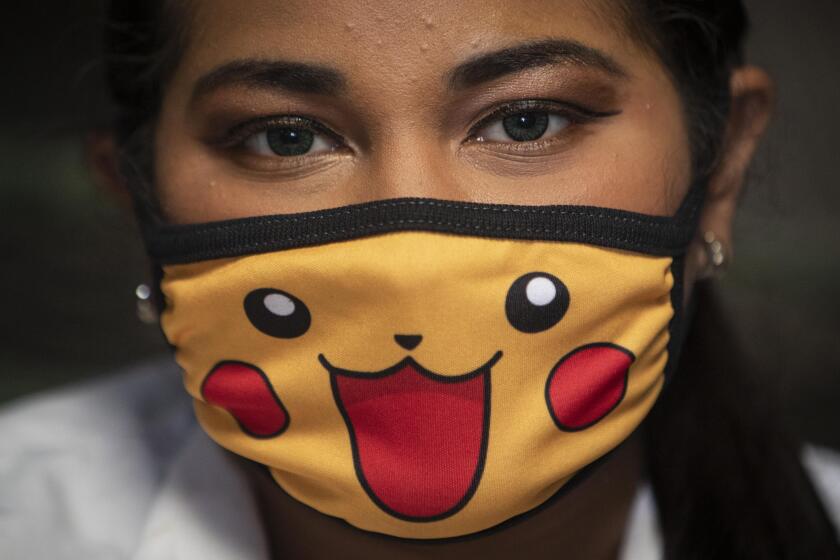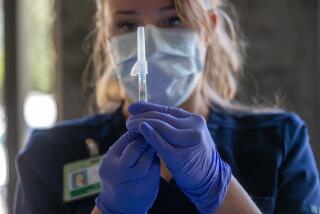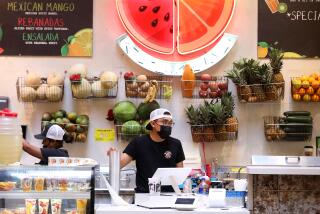What you should know about wearing gloves and a mask if you can’t work from home

As state and local officials have issued strict stay-at-home mandates to curb the spread of COVID-19, there are many workers who don’t have the luxury of staying home. There’s the neighbor working at a grocery store with an elderly parent at home, or the gas station clerk keeping the pumps running.
As the virus spreads and more people become infected, you may be wondering how to stay safe. Here’s the best information we have from Southern California public health experts.
Above all, wash your hands
First, experts say, handwashing is unbeatable. Hot or cold water. Use soap. Sing a song while you’re doing it so you’re washing for at least 20 seconds. Wash your hands before, during and after your shift and avoid touching your face. One expert suggested using a scented soap so you could use the scent as a reminder not to touch your face.
Think about what your hands are coming into contact with. If you’re touching doorknobs, rails or elevator buttons, wash your hands again.
“There’s nothing better than washing hands,” said Steve Chen, associate dean for clinical affairs at USC.
What about gloves?
Gloves can serve as a layer of protection but can still transmit the novel coronavirus, which causes COVID-19, said David Bazzo, a clinical professor of family medicine at UC San Diego. In short: The gloves may be protecting you but also transmitting the virus.
“If you’re touching surfaces, what else are you touching with those gloves?” Bazzo said. “Are you taking something from one person and giving it to another person?”
Before and after wearing the gloves, experts say to wash your hands. Think about how often you’re changing those gloves, and make sure that the pair, or pairs, you’re cycling through fit snugly.
Remember, Bazzo said, that if you’re washing your hands and practicing social distancing (as much as you can), that’s probably as good as wearing gloves.
Experts also said to use the same precautions you would if you weren’t wearing gloves.
“Sometimes when people wear protective equipment, it gives them a false sense of security, and we should protect against that as well,” Bazzo said.
Should you wear a mask?
Answers to this question are mixed. With widespread shortages prompting some medical professionals to resort to bandannas for protection, experts caution not to wear the mask unless you’re showing symptoms of the virus or are already sick, experts said.
If you’re wearing the CDC-recommended mask — the N95 respirator — it needs to fit right.
Experts said they’d seen widespread misuse of masks: People will touch the mask, fidget with it, drop it, then put it back on. Sometimes they’re upside down or and worn for too long, said Bernadette Boden-Albala, the dean of public health at UC Irvine.
The Centers for Disease Control and Prevention has not recommended that people wear masks for everyday activities, and with a shortage of supplies, experts urged caution. Ask yourself whom you might be taking it away from.
The evidence suggests there’s no benefit to wearing a mask if you’re not infected, USC’s Chen said. U.S. health officials, however, have recommended that medical workers treating suspected coronavirus patients wear the N95 mask.
If an infected person uses “the mask diligently, it should reduce transmission,” Chen said. That means putting on the mask with your hands only after they’ve been washed.
Experts acknowledge that it’s tough to know how to keep yourself safe. And for the people who have an elderly parent at home or who must work in jobs that require interaction with others, there isn’t an easy answer.
“I can say here’s what we know,” Bazzo said. “Here are best practices, and please try to stick to those as best you can because that’s your best chance of preventing spread and trying to keep you and your family safe.”
Doctors treating coronavirus patients running out of masks? Try a bandanna, the CDC says
Coronavirus Basics
Links
- California COVID-19 site
- Tests
- Mask rules and guides
- CDC | Pandemic guide | LAUSD
- Health depts: California | L.A. County | Orange County
- Emergency physicians site
More to Read
Start your day right
Sign up for Essential California for news, features and recommendations from the L.A. Times and beyond in your inbox six days a week.
You may occasionally receive promotional content from the Los Angeles Times.








